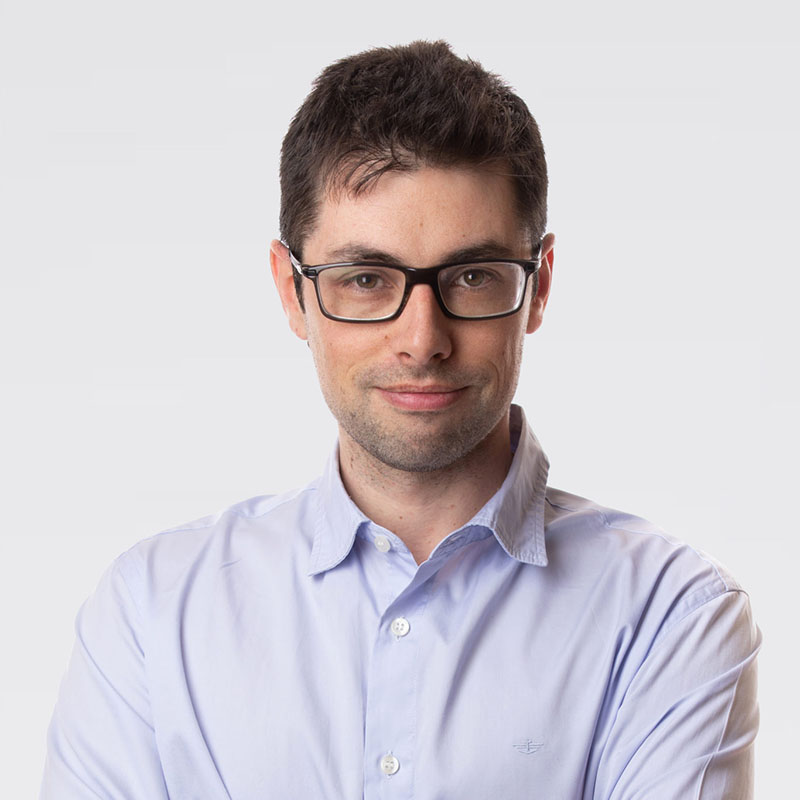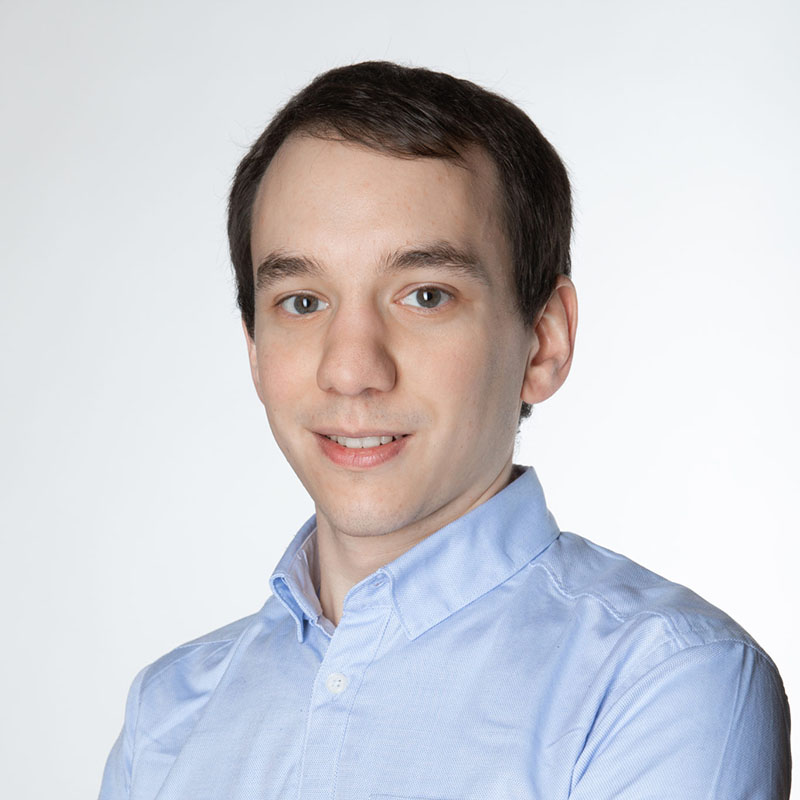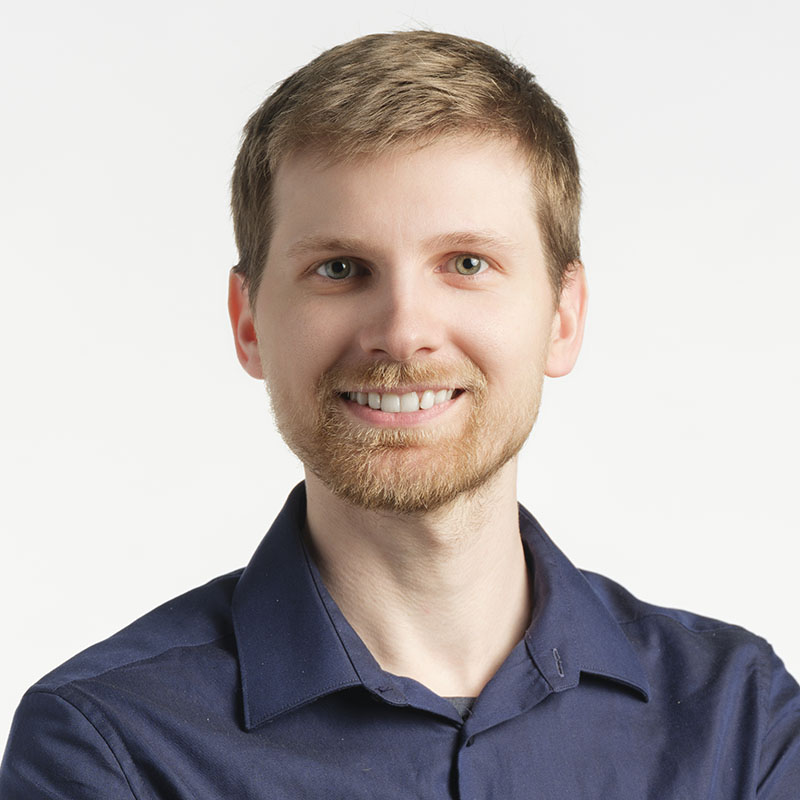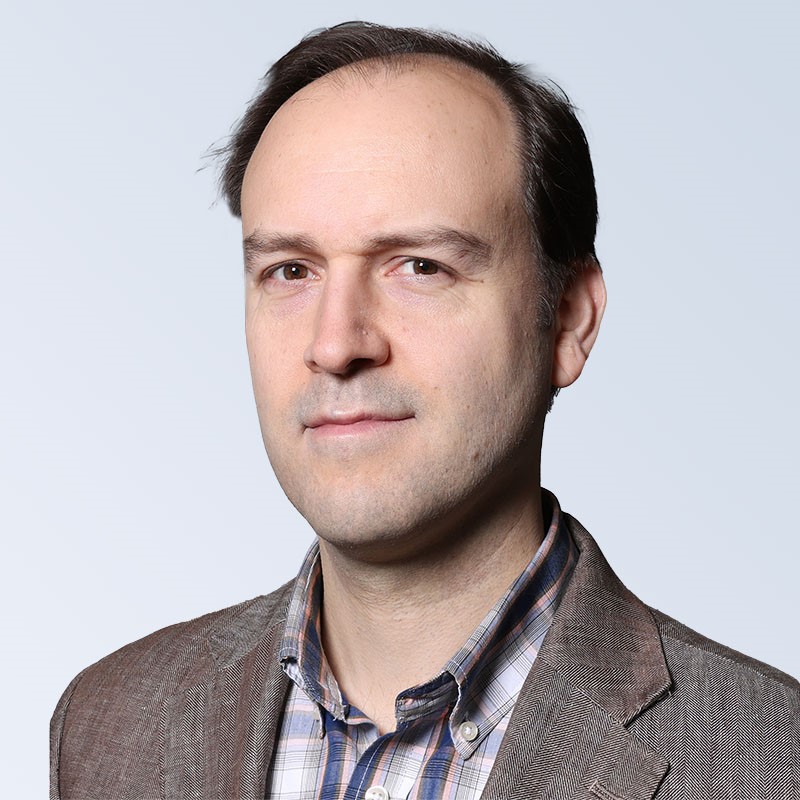
ENID | Enabling Innovation with Data Science at EPFL


Dr. Olivier Verscheure is the director and founder of the Swiss Data Science Center (SDSC). Olivier also co-leads a joint training program between EPFL and HEC Lausanne, specifically designed for senior executives. Since 2018, Olivier has been a member of the Board of Directors of Lonza, a global leader in the life sciences sector. This company provides products and services to the pharmaceutical, biotechnology, and specialized healthcare industries.Olivier began his career at IBM Research after earning his Ph.D. in computer science from EPFL. He held several research and leadership positions at the IBM T. J. Watson Research Center in New York and co-created and co-directed the IBM Research center in Dublin, Ireland, before joining the EPFL in 2016.


Alessandro joined the SDSC in March 2019 as a data scientist focused on industry collaborations. His mission is to support corporates in leveraging the power of their data by adopting analytical approaches and data-centric solutions. His background is in biomedical engineering, with a PhD in neuroscience from the University of Tübingen. Before joining the center, he worked as a postdoc at the Max Planck Institute for Biological Cybernetics, at the EPFL Laboratory of Cognitive Neuroscience in Geneva, and as data scientist for a private ecommerce company.


Valerio started his career working for 7 years as a particle-physics researcher at CERN. There, he used state-of-the-art techniques to extract information from data, especially to search for traces of dark matter in particle collisions. Since 2016, he has worked in consulting, applying data science in several industries. First, he joined the Quant team of Ernst & Young in Geneva. Later, he created his own company, SamurAI sàrl, providing consulting services for his clients. He also has a passion for teaching very complex subjects in simple terms. That is why he particularly enjoys offering training programs to private companies and universities. Valerio joined the SDSC in Mai 2022 as a Principal Data Scientist with the mission of accompanying industrial partners and other institutions through their data science journey.


Roberto holds an M.Sc. and a Ph.D. in Particle Physics from the University of Torino, Italy. He has worked for several years in fundamental research as a senior fellow and data scientist at the CERN Experimental Physics division and on a research project supported by the Belgian National Fund for Scientific Research (FNRS). In 2018 he moved to EPFL to work on data mining and Machine Learning techniques for the built environment and renewable energies. He has started and led multiple collaborations with academic and industry partners in the energy domain. Roberto joined the SDSC in September 2021 as a Principal Data Scientist with the mission of accompanying industries, NGOs and international organizations through their data science journey.


Silvia holds an MSc in Computer Science from EPFL and a PhD in Computer Science from the University of York, UK. She has been a senior research fellow at the University of Trento and later at Politecnico di Milano, Italy. Here, she had the chance to work on Marie Curie and ERC projects relating to natural language processing. From 2012 to 2019, she was a Senior Manager and NLP expert at ELCA Informatique Switzerland, whose AI department she helped create and expand. Silvia joined the Swiss Data Science Center in 2019 and is currently its Chief Transformation Officer, in charge of the team leading organizations to digital transformation.


Clément became part of the SDSC team in January 2019, assuming the role of a Data Scientist with an emphasis on industry-oriented projects. He holds a Bachelor of Science degree in Physics, acquired in 2016 from the École Polytechnique Fédérale de Lausanne (EPFL) in Switzerland. Following this, he earned a Master of Science in Computational Science and Engineering in 2018, also from EPFL. Throughout his academic journey, Clément concentrated on leveraging Data Science and Machine Learning techniques to enhance efficiency in industrial processes. Subsequently, he developed a specialized interest in Generative AI, with a particular focus on Natural Language Processing (NLP), especially in the application of Large Language Models for innovation.


Thibaut holds a B.Sc in Computer Science from HEIG-VD. Before joining the SDSC, he worked in startups where he developped a diverse skill set combining cloud infrastructure, database and application development. Thibaut is very enthusiatic about new technologies and best coding practices and he is looking forward to supporting the team and its projects.


Matthias Galipaud obtained his PhD in evolutionary biology in 2012 from the University of Burgundy in Dijon (France), and held postdoctoral positions as a mathematical biologist at the university of Bielefeld (Germany) and the university of Zurich, where he researched the evolutionary theories of aging and mate choice. In 2020, he became a data scientist, developing machine learning solutions for startups in Switzerland and Australia before joining the SDSC Innovation Team in November 2022.

Presentation
Overview
In today’s world, data is everywhere, yet the ability to harness its potential for informed decision-making, and consequently, its significant impact on business, remains elusive to most organizations. But how should an organization start to become data-driven? What are the best practices for implementing data science models that benefit the entire organization? And how to negotiate executive buy-in for data science initiatives?
This 5-day course focuses on achieving impact and innovation with data science. It features theoretical lectures on selected applications of data science (e.g. natural language processing and computer vision) and practical lectures on leveraging data science within a business context (project management, impact evaluation, performance metrics, stakeholder management).
Details
Target audience
Experienced professionals and executives wishing to steer data science initiatives and generate business impact. The course will be given in English.
Objectives
- Understand the foundational principles and techniques of data science within the broader context of artificial intelligence (AI) and machine learning, including deep learning applications
- Be able to objectively assess complexity and scalability of AI use cases
- Acquire the tools to manage AI projects from scoping to Minimum Viable Product (MVP) solution deployment
- Explore real-world applications through hands-on machine learning assignments and discover concrete data science applications
- Connect and share with other industry professionals
Instructors
- Prof. Olivier Verscheure, Executive Director, SDSC
- Dr. Alessandro Nesti, Principal Data Scientist, SDSC
- Dr. Valerio Rossetti, Principal Data Scientist, SDSC
- Dr. Roberto Castello, Principal Data Scientist, SDSC
- Dr. Silvia Quarteroni, Head of Innovation Unit, SDSC
- Clément Lefebvre, Senior Data Scientist, SDSC
- Thibaut Loiseau, Machine Learning Engineer, SDSC
- Dr. Matthias Galipaud, Senior Data Scientist, SDSC
Certification
A certificate of attendance will be delivered at the end of the course.
Organization
The Swiss Data Science Center (SDSC) is a strategic focus area of the ETH domain, with data professionals located at Ecole Polytechnique Fédérale de Lausanne (EPFL), the Eidgenössische Technische Hochschule Zürich (ETH) and Paul Scherrer Institut (PSI). The course Enabling Innovation with Data Science is delivered at EPFL and ETH Zurich (ETHZ). More information about the ETHZ editions is available here.
Program Director
Prof. Olivier Verscheure, Executive Director, Swiss Data Science Center (SDSC)
Practical Information
Dates and schedule
- Fri. May 9, 2025, 9am to 5pm
- Fri. May 16, 2025, 9am to 5pm
- Fri. May 23, 2025, 9am to 5pm
- Fri. June 6, 2025, 9am to 5pm
- Fri. June 13, 2025, 9am to 5pm
Course venue
EPFL, Lausanne, Switzerland
Prerequisites
- Prior experience working with data in a practical context, such as data reporting, visualization, and statistical analysis using structured data, is required.
- Participants are required to bring their own laptop for use during hands-on practical exercises (installation of KNIME Analytics Platform free software is necessary for hands-on experience.)
Course fee
4000.- Swiss Francs
10% special discount for contributing members of EPFL Alumni, as well as EPFL VPI partners and SDSC partners
Registration deadline
March 17, 2025
Number of participants is limited
Programme
DAY 1: INTRODUCTION TO DATA SCIENCE AND DIGITAL TRANSFORMATION
- Data science history, terminology and basic concepts
- Digital transformation – becoming data-driven
- Hands-on session with no-code platform (KNIME) – supervised learning
- AI project management strategies and tools
DAY 2: FUNDAMENTALS OF MACHINE LEARNING (PART 1)
- Strength and limitations of different supervised learning algorithms (including deep learning) and performance metrics, with hands-on session (KNIME)
- Best practices for industrialisation of solutions and reusability of digital assets
- Presentation of 3 use cases delivered by SDSC
DAY 3: FUNDAMENTALS OF MACHINE LEARNING (PART 2)
- Strength and limitations of different algorithms for unsupervised learning and time series forecasting, with hands-on session (KNIME)
- Ethical and legal aspects of AI, with an overview of model explainability and bias mitigation technique
- Canvassing exercise – how to start a project on the right track
DAY 4: NATURAL LANGUAGE PROCESSING (NLP)
- History of NLP, algorithms and applications, with hands-on session (KNIME and ChatGPT)
- AB testing for business impact assessment
- Presentation of 3 use cases delivered by SDSC
DAY 5: COMPUTER VISION (CV) AND GENERATIVE AI
- Computer Vision (CV) algorithms and applications, with a hands-on beginner-friendly interactive programming session (in python)
- Generative AI in NLP, CV and other areas
- Presentation of 2 use cases delivered by SDSC
- Group discussion and feedback on canvassed projects by participants
Other events

ENID | Enabling Innovation with Data Science at ETH Zurich


Dr. Olivier Verscheure is the director and founder of the Swiss Data Science Center (SDSC). Olivier also co-leads a joint training program between EPFL and HEC Lausanne, specifically designed for senior executives. Since 2018, Olivier has been a member of the Board of Directors of Lonza, a global leader in the life sciences sector. This company provides products and services to the pharmaceutical, biotechnology, and specialized healthcare industries.Olivier began his career at IBM Research after earning his Ph.D. in computer science from EPFL. He held several research and leadership positions at the IBM T. J. Watson Research Center in New York and co-created and co-directed the IBM Research center in Dublin, Ireland, before joining the EPFL in 2016.


Silvia holds an MSc in Computer Science from EPFL and a PhD in Computer Science from the University of York, UK. She has been a senior research fellow at the University of Trento and later at Politecnico di Milano, Italy. Here, she had the chance to work on Marie Curie and ERC projects relating to natural language processing. From 2012 to 2019, she was a Senior Manager and NLP expert at ELCA Informatique Switzerland, whose AI department she helped create and expand. Silvia joined the Swiss Data Science Center in 2019 and is currently its Chief Transformation Officer, in charge of the team leading organizations to digital transformation.


Anna joined SDSC as a Data Scientist focusing on industry collaborations in July 2019. She completed her PhD in Bioinformatics at the University of Luxembourg, where she analysed large-scale heterogeneous datasets and leveraged multiple disciplines: Statistics, Network Analysis, and Machine Learning. Before joining SDSC, Anna worked as a Data Scientist at Deloitte Luxembourg, with a focus on computer vision and time-series analysis.Currently, Anna is a Principal Data Scientist based at the ETH Zurich office, where she leads biomedical collaborations with industry partners. Anna works on a range of projects: protein properties prediction, biomanufacturing optimization, statistical model evaluation and others.


Matthias Galipaud obtained his PhD in evolutionary biology in 2012 from the University of Burgundy in Dijon (France), and held postdoctoral positions as a mathematical biologist at the university of Bielefeld (Germany) and the university of Zurich, where he researched the evolutionary theories of aging and mate choice. In 2020, he became a data scientist, developing machine learning solutions for startups in Switzerland and Australia before joining the SDSC Innovation Team in November 2022.


Dan received an MSc in civil and environmental engineering from UC Berkeley and a Ph.D. from EPFL, where he developed models combining machine learning and geographic information systems to estimate renewable energy potentials on a large scale. After serving as a researcher/data scientist at Unisanté (Lausanne) and completing a one-year postdoc at the Quebec Artificial Intelligence Institute (Mila) in Montréal, Dan joined the SDSC Innovation team. His work has generally been focusing on crafting and tailoring machine learning methods and deep learning architectures for a variety of domains, most notably the spatio-temporal modeling and forecasting of environmental and energy related variables, as well as multiple applications in public health research.

Synthetic Data for Biomedical Applications


Before joining SDSC, Arshjot Khehra received his MSc in Artificial Intelligence from USI Lugano, where he completed his thesis on hierarchical graph reinforcement learning. Previously, he worked for 4+ years across India and Singapore gaining data science experience in insurance, logistics, and manufacturing sectors. He also holds a BSc in Industrial Engineering from PEC Chandigarh. Over the course of his career, Arshjot worked on a wide array of projects, such as, handwritten text recognition and generation, voice matching across phone call recordings, policy lapse rate prediction for customer retention, and automated insurance claim processing.


Matthias Galipaud obtained his PhD in evolutionary biology in 2012 from the University of Burgundy in Dijon (France), and held postdoctoral positions as a mathematical biologist at the university of Bielefeld (Germany) and the university of Zurich, where he researched the evolutionary theories of aging and mate choice. In 2020, he became a data scientist, developing machine learning solutions for startups in Switzerland and Australia before joining the SDSC Innovation Team in November 2022.


Valerio started his career working for 7 years as a particle-physics researcher at CERN. There, he used state-of-the-art techniques to extract information from data, especially to search for traces of dark matter in particle collisions. Since 2016, he has worked in consulting, applying data science in several industries. First, he joined the Quant team of Ernst & Young in Geneva. Later, he created his own company, SamurAI sàrl, providing consulting services for his clients. He also has a passion for teaching very complex subjects in simple terms. That is why he particularly enjoys offering training programs to private companies and universities. Valerio joined the SDSC in Mai 2022 as a Principal Data Scientist with the mission of accompanying industrial partners and other institutions through their data science journey.

Data Science for the Sciences


Guillaume Obozinski graduated with a PhD in Statistics from UC Berkeley in 2009. He did his postdoc and held until 2012 a researcher position in the Willow and Sierra teams at INRIA and Ecole Normale Supérieure in Paris. He was then Research Faculty at Ecole des Ponts ParisTech until 2018. Guillaume has broad interests in statistics and machine learning and worked over time on sparse modeling, optimization for large scale learning, graphical models, relational learning and semantic embeddings, with applications in various domains from computational biology to computer vision.
Contact us
Let’s talk Data Science
Do you need our services or expertise?
Contact us for your next Data Science project!



